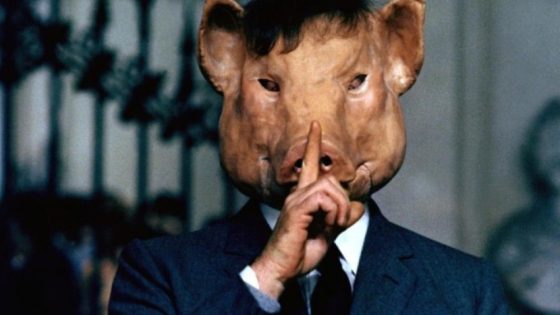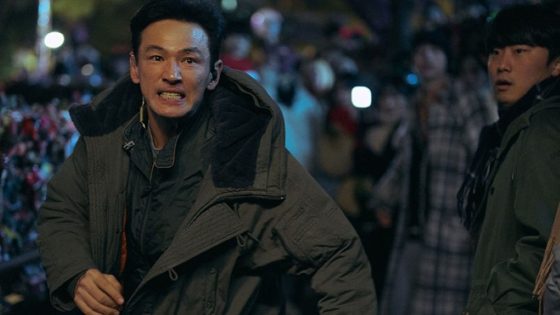Since taking over in 2022, NIFFF director Pierre-Yves Walder has made the festival’s socially tinged retrospective program a hallmark of his tenure. Rounding out a so-called trilogy that started with queer representation then followed with a gender focus that put the femme fatale and scream queen under the spotlight, this year’s retrospective will tackle class conflict in cheeky terms, putting the screws to those swells with a 20 film program titled Eat the Rich.
“Genre cinema has always treated questions of predation, exploitation and everyday brutality with such complexity,” says Walder, “which makes it so interesting to how this theme evolves over the course of film history.”
The far-ranging program tackles nearly a century worth of upper-class perfidy, beginning with Yakov Protazanov’s early-Soviet sci-fi “Aelita” from 1924 and running through to Jenna Cato Bass’ South African servitude creeper “Good Madam” from 2021. In between are landmarks like Alfred Hitchcock’s “Rope” and Luis Buñuel’s “The Exterminating Angel,” cult classics like Oshii Mamoru’s “Ghost in the Shell” and Mary Harron’s “American Psycho,” and modern standouts like Bong Joon-ho’s “Snowpiercer” and Ari Aster’s “Midsommar.”
Linking the diverse slate – which runs the gamut from Pier Paolo Pasolini’s “Porcile” to John Carpenter’s “They Live” – is an earnest desire to thoughtfully engage with the questions the films raise. With that goal in mind, Walder and his team programed the retrospective with help from academics and sociologists, organizing conferences and looking for films that embodied key social dynamics.
“I love exploring my concerns and interests and curiosities through cinema,” Walder explains. “So I needed experts who could guide that process, and found the work extremely enriching. The retrospective doesn’t have a singular message nor does it adhere to any big theory – we just want to offer food for thought without getting too intellectual about it. We aim to translate these rather lofty notions into pop culture fun.”
“Society”
NIFFF
Walder is particularly excited to share Christopher MacBride’s “The Conspiracy,” a found-footage horror film from 2012 about two documentarians on the search for a crackpot gone missing. “This film could have been made last week,” the programmer says. “It’s a deep dive into this conspiratorial, fake news, Pizzagate mindset that has grown all the more relevant since the film was made. It plays with that paranoia about plots, debauchery, and secret societies – only here, all of suspicions happen to be true!”
Of course, no one film better encapsulates the Eat the Rich ethos than Brian Yuzna’s 1989 bad taste body horror comedy “Society,” a grand-guignol gross-out that skewers the upper-crust with manic glee, and that served as Walder’s north star and moodboard when thinking about the wider selection.
“The film imparts this absolute decadence hiding behind a vague veneer of propriety and respectability in absolutely outlandish way,” says Walder. “What kind of monstrosity behind fine clothes and magnificent salons? There’s something so deeply cinematic and interesting about seeing that social veneer disintegrate, especially when expressed with such an offbeat view of sexuality and the human body. In that way, it’s a wonderful companion piece to Bunuel’s ‘The Exterminating Angel.’”
French author and journalist Nora Bouazzouni, agrees, seeing in genre cinema a unique capacity to better confront what’s right in front of us.
“Whether in sci-fi, fantasy or horror, these films push open a door, shaping our imaginations and thus how we see the world,” she says. As it happens, Bouazzouni authored a 2023 book also titled Eat the Rich – and though the text has little to do with the Neuchatel retrospective, the author will be on-hand to take part, serving on jury duty at this year’s festival.
“Films like ‘Snowpiercer’ and ‘Gattaca’ project current issues onto a shaky future, helping us better see them to the full extent,” she says. “And by showing how the dynamics of power remain fixed across a different time and place, these films might even remind people that today’s struggle is more relevant than ever.”

“Snowpiercer”
Source Agencies




